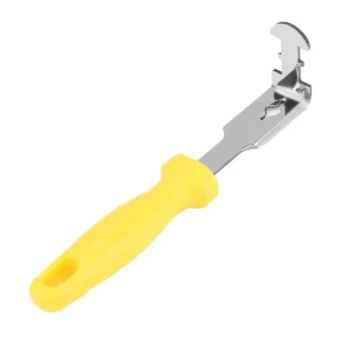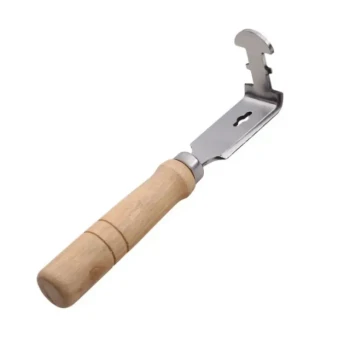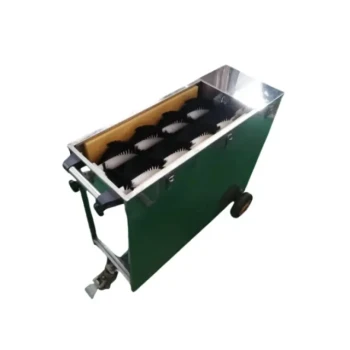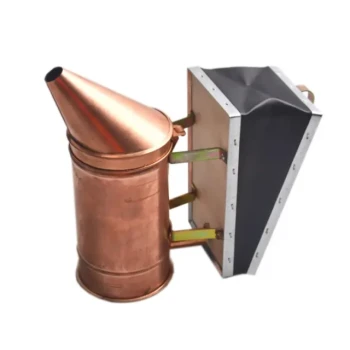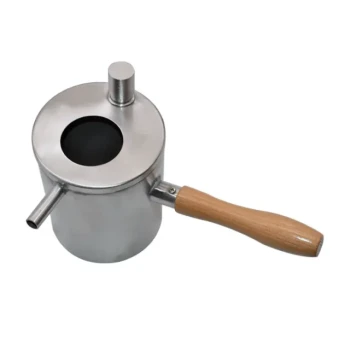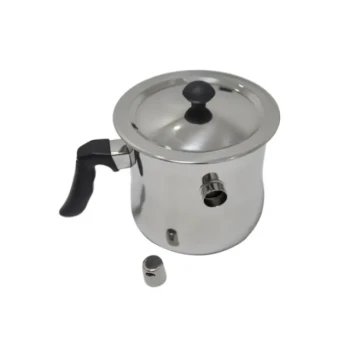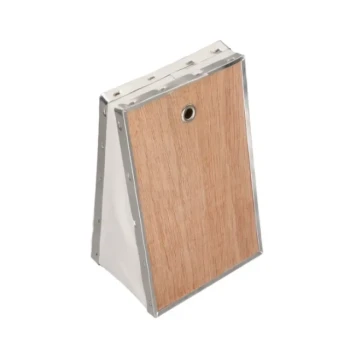To succeed as a new beekeeper, you need a specific blend of personal qualities and a willingness to learn. The most important traits are a strong sense of commitment, a genuine passion for the craft, a sharp focus during hive inspections, and a dedication to continuous education. It is a pursuit that cannot be mastered overnight but requires patience and preparation.
Successful beekeeping is less about having a specific personality and more about adopting a mindset of patient observation and continuous learning. While the right tools are necessary, your commitment to understanding the bees' needs through changing seasons is the true key to a thriving apiary.

The Core Qualities of a Beekeeper
Beekeeping is a responsibility, not a passive hobby. The bees depend on your stewardship. Cultivating the right mindset from the start is more critical than any piece of equipment you can buy.
A Deep Sense of Commitment
Beekeeping is a year-round endeavor. Your responsibilities don't end when the honey is harvested.
You must be prepared for seasonal tasks, from feeding in the fall and winter to managing swarm instincts in the spring. This is a long-term commitment to the health of a living organism.
Genuine Passion and Curiosity
Passion is the fuel that will carry you through the inevitable challenges. You will encounter setbacks, such as pests, disease, or even losing a colony.
A genuine curiosity about bee biology and behavior will turn these challenges into learning opportunities rather than moments of defeat.
Unwavering Focus
When you are working in a hive, your full attention is required. Focus is essential for your safety and the bees' well-being.
During an inspection, you are looking for subtle clues: the health of the queen, the pattern of her egg-laying, and any signs of stress or disease. A distracted mind will miss these critical indicators.
A Dedication to Education
What works for a beekeeper in one region may not work in another. Beekeeping is a localized science that demands constant learning.
You must actively seek knowledge about local forage, pest pressures, and weather patterns. Joining a local beekeeping club or finding a mentor is one of the most effective ways to accelerate this learning process.
Beyond Qualities: The Practical Foundations
While personal traits are the foundation, they must be supported by practical knowledge and the right tools.
The Right Tools for the Job
Proper equipment is not about luxury; it's about safety and effectiveness. The basic toolkit enables you to interact with the colony calmly and efficiently.
Essential tools include:
- A hive tool for prying apart frames and boxes.
- A smoker to calm the bees, making inspections safer.
- A bee brush to gently move bees without harming them.
- Protective gear like a veil, jacket, and gloves to prevent stings.
Understanding the Hive
A beehive is not just a box of insects; it is a complex "superorganism." Every bee has a role, and the colony functions as a single, integrated entity.
Your goal as a beekeeper is not to command the bees, but to support the colony's natural instincts and help it thrive.
Understanding the Inevitable Challenges
An objective view of beekeeping must include its difficulties. Being prepared for them is a quality in itself.
The Reality of Stings
You will get stung. It is not a matter of if, but when. High-quality protective gear and calm, deliberate movements will minimize stings, but they are a part of the experience.
The Possibility of Colony Loss
Even expert beekeepers sometimes lose hives to harsh winters, persistent pests like Varroa mites, or disease. This can be emotionally and financially difficult. Resilience is a key, unstated trait of every long-term beekeeper.
The Time and Financial Investment
Beekeeping requires a notable investment of both time and money. Beyond the initial cost of bees and equipment, there are ongoing needs for feeding, mite treatments, and potentially replacing equipment or colonies.
How to Prepare for Your First Hive
Your approach should align with your ultimate goal. Before you make a purchase, reflect on what you hope to achieve.
- If your primary focus is the hobby and pollination: Start small with one or two hives and prioritize joining a local beekeeping club for mentorship and support.
- If your primary focus is honey production: Understand that significant yields take time and multiple healthy hives, which requires a larger initial investment and a steeper learning curve.
- If your primary focus is simply learning: Begin with education. Read books, take a course, and shadow an experienced beekeeper for a full season before you buy any equipment.
By balancing your passion with practical preparation, you set the foundation for a deeply rewarding journey with these incredible insects.
Summary Table:
| Essential Quality | Why It Matters for Beekeepers |
|---|---|
| Deep Commitment | Beekeeping is a year-round responsibility to the health of a living colony. |
| Genuine Passion | Fuels perseverance through challenges like pests, disease, or colony loss. |
| Unwavering Focus | Ensures safety and allows you to spot subtle, critical health indicators during hive inspections. |
| Dedication to Education | Beekeeping is a localized science; continuous learning about regional conditions is key to success. |
Ready to Start Your Beekeeping Journey with the Right Foundation?
Whether you're a hobbyist starting your first hive or a commercial apiary scaling your operations, having reliable, high-quality equipment is non-negotiable. HONESTBEE supplies the essential beekeeping supplies and equipment that commercial apiaries and distributors trust.
We understand that your success depends on durable tools that allow for calm, efficient hive management. Let us be your wholesale partner in building a thriving apiary.
Contact HONESTBEE today to discuss your equipment needs and set your beekeeping venture up for long-term success.
Visual Guide

Related Products
- HONESTBEE Advanced Ergonomic Stainless Steel Hive Tool for Beekeeping
- Heavy Duty Stainless Steel Frame Cleaner with Plastic Handle
- Professional Rolling Wax Cutter with Ergonomic Handle
- Electric Flatting and Embossing Machine with Tray for Beekeeping
- Plastic Chinese Queen Grafting Tool for Bee Queen Rearing
People Also Ask
- What is the primary function of a Protective Housing in a beehive remote monitoring system? Ensure Long-Term Reliability
- How do synthetic pheromone slow-release strips function? Simulating Queen Bee Presence for Precise Hive Management
- How do specialized bee transport vehicles impact migratory beekeeping? Scale Your Apiary with High-Yield Logistics
- Why is maintaining tidy conditions important for beehives? A Proactive Strategy for Colony Health
- What is the benefit of using pH test strips for honey screening? Optimize Quality Control & Efficiency
- Do honey bees leave their hives? Understanding the Critical Role of Swarming
- Is refrigeration necessary for storing honey? Avoid spoiling texture and quality
- What methods are used in the food industry to measure honey color intensity? Pfund and Lovibond Standards Explained

